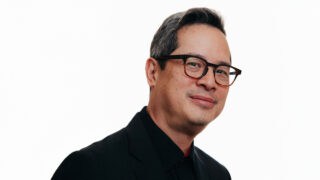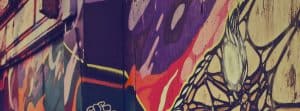The Lavin Agency Speakers Bureau
A speakers bureau that represents the best original thinkers,
writers, and doers for speaking engagements.
A speakers bureau that represents the best original thinkers,
writers, and doers for speaking engagements.
Telling our own stories enlarges the circumference of our imaginations.
Our collective and individual identities are messy, amorphous, and impossible to define—but New Yorker staff writer and bestselling author Hua Hsu says that’s a good thing. Telling our own complex stories complicates the narratives that are told about us, and opens up new worlds of possibility. Hua won the Pulitzer Prize for his New York Times bestselling memoir Stay True, which turned him into a “literary phenomenon” (The New York Times). It was named one of The NYT’s 100 Best Books of the 21st Century (alongside classics like The Goldfinch and Americanah), and won the 2022 National Book Critics Circle Award for Autobiography. It touches on the immigrant experience and growing up Asian-American; but more than that, it’s an exploration of grief, pop culture, being young, and how friendship helps us discover who we are. Hua weaves his story with wider questions of inclusion and culture, proving that moments of connection and community always surround us.
“The things that make Hua Hsu’s writing so singular—his searching grace, his rigorous sensitivity, his ability to make a living world out of the seemingly liminal—crystallize in this once-in-a-lifetime book.”
— Jia Tolentino, New York Times bestselling author of Trick Mirror
The son of Taiwanese immigrants, Hua Hsu grew up desperate to build an identity of his own. But despite his countercultural interests, he struck up a friendship with Ken, a seemingly mainstream San Diego native whose Japanese-American family had been in the country for generations. Hua’s New York Times bestselling memoir Stay True is the poignant story of that friendship and the marks it left on his life, as well as a moving reflection on identity, self-discovery, connection, and the immigrant experience.
Stay True won the 2023 Pulitzer Prize for Memoir, as well as the 2022 National Book Critics Circle Award for Autobiography. The National Book Critics Circles writes that Hua has “crafted a transformative addition to the Asian American canon and to the critical conception of what a memoir is capable of.” Stay True is one of TIME’s 100 Must-Read Books of the Year, a New York Times Top 10 Book of the Year, a Publishers Weekly best nonfiction book of the year, and a New Yorker best book of the year. Ocean Vuong, New York Times bestselling author of On Earth We’re Briefly Gorgeous, said that Stay True is “writing at its most open, meticulous, forgiving and tender—which is to say, this is writing at its best.” Hua pays tribute to his friend by bringing their shared memories to life, elevating the entire memoir genre “with a kind of athletic ease” (Vanity Fair).
A staff writer at The New Yorker since 2017, and a contributor since 2014, Hua has covered a range of topics: from immigrant culture and student debt to hip-hop and affirmative action. In addition to Stay True, he is the author of A Floating Chinaman: Fantasy and Failure Across the Pacific. He currently teaches at Bard College and has previously taught at Harvard and Vassar College. Hua serves on the executive board of the Asian American Writers’ Workshop and Critical Minded, an initiative to create opportunities for cultural critics of color, and was formerly a fellow at the New America Foundation and the Dorothy and Lewis B. Cullman Center at the New York Public Library.

Violinist Artistic Director Founder, Street Symphony Author, Restrung (Grand Central Publishing, 2026)

Social Historian, Cultural Critic & Community Organizer Author, Water Mirror Echo: Bruce Lee and the Making of Asian America
Renowned Cultural Critic New York Times Bestselling Author of 10 Books, Including Football and Sex, Drugs, and Cocoa Puffs

Author of Self-Compassion: The Proven Power of Being Kind to Yourself Co-founder of the Center for Mindful Self-Compassion
CEO of Trend Hunter New York Times bestselling author of Create the Future
Bestselling author of The Age of Surveillance Capitalism Harvard Business School Professor Emerita Activist and scholar

#1 New York Times Bestselling Author of Grit and Situated | Pioneering Researcher on Grit, Perseverance, and the Science of Success

Nobel Prize Winner | 3rd Most Cited Economist in the World | Bestselling Co-Author of Why Nations Fail and Power and Progress

Harvard Business School Behavioral Science Professor | "40 Under 40 MBA Professor" | Author of TALK: The Science of Conversation and the Art of Being Ourselves

#1 New York Times Bestselling Co-Author of Abundance | Host of thePlain English Podcast | Founder of the Substack Derek Thompson

#1 New York Times Bestselling Author of How the Word Is Passed and Above Ground | The Atlantic Staff Writer
Born to first-generation Taiwanese immigrants, New York Times bestselling author Hua Hsu knows that telling stories of our own culture and identity are crucial to achieving true belonging. “The first generation thinks about survival; the ones that follow tell the stories,” he writes in his acclaimed memoir Stay True. But Asian-American identity is so broad and encapsulates such a large swath of people—what does it even mean to tell Asian-American stories?
In this talk, Hua explores the “delightfully messy” world of Asian-Americanness, from food to clutter to history. Drawing on his experience growing up as a second-generation immigrant and his process of self-discovery, he proves that we don’t need to have our stories all figured out before we start to tell them. “A lot of people find Asian-American identity to be this vexing thing, existential, a moving target—but that’s the point, right?” Hua says. “It’s a community that’s constantly in a state of becoming.”

How do we figure out who we are? And how do we define ourselves in comparison to others or the prevailing culture? To bestselling author and self-described “pack rat” Hua Hsu, reflecting on the things we like is one way that we can discover our own identities—not only as individuals, but also as communities. The things we love and find cool tell a story about us, and about where we fit into the wider culture and history. They are ghosts of the past, drawing us into history; and they’re markers of our identity and the things we love.
In this talk, Hua discusses the importance of liking things; and not only liking them, but understanding why we like them and what that says about us. He also discusses how important it is to have friends who like different things and have different tastes. As he writes in Pioneer Works, “your sense of selfhood needs to be complicated as much as it needs to be complete.”